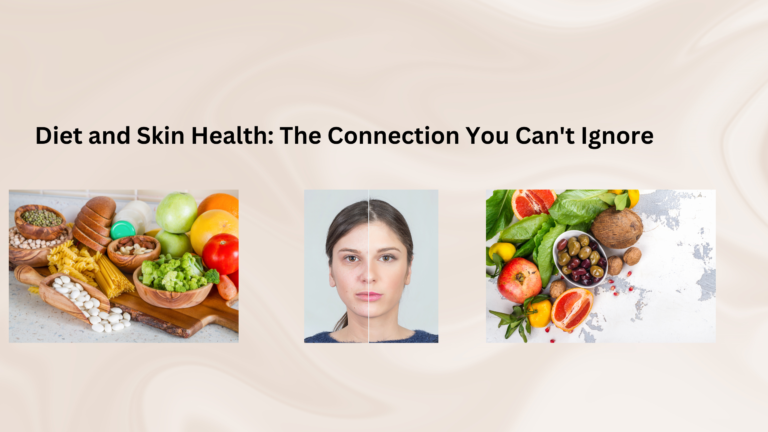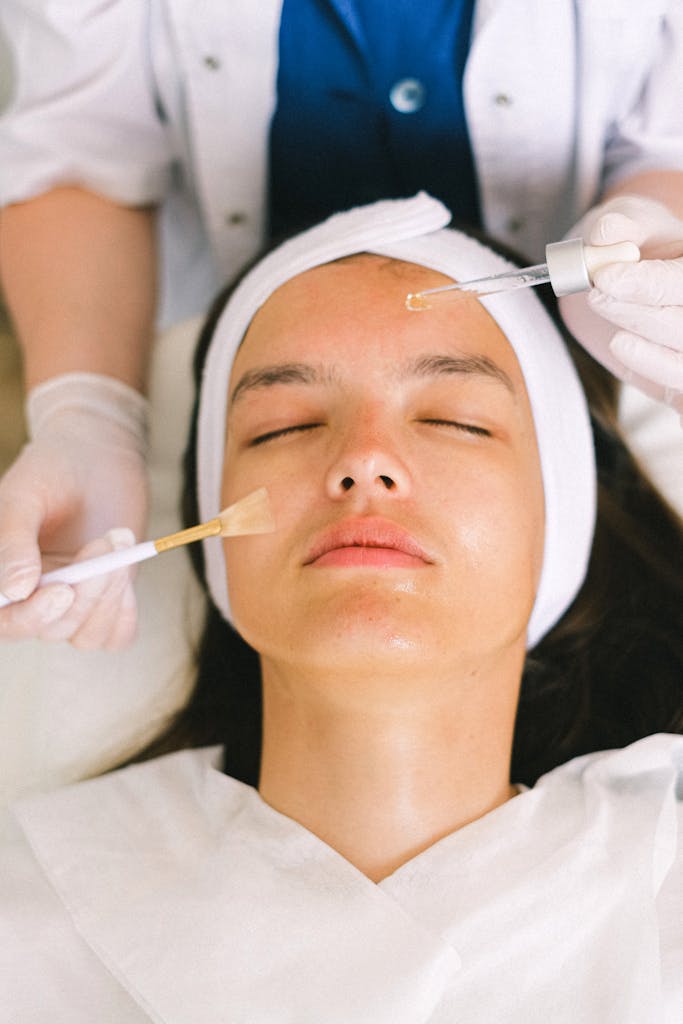Introduction
The role of diet in skin health is significant and often underestimated. Many people focus on external skincare products, but what you put into your body can be just as crucial, if not more so. This blog post explores how various dietary choices impact your skin, the advantages and disadvantages of specific food groups, and practical advice on improving your skin health through nutrition. If you’re looking to achieve clearer, more radiant skin, understanding the connection between your diet and your skin’s appearance is essential.
Understanding the Connection Between Diet and Skin Health
How Nutrition Affects Skin
Nutrition plays a vital role in maintaining skin health. The skin is the largest organ in the body and requires a balanced intake of vitamins, minerals, and antioxidants to function properly. A diet rich in fruits, vegetables, healthy fats, and lean proteins can help improve skin elasticity, hydration, and overall appearance.
Key Nutrients for Healthy Skin
- Vitamins:
- Vitamin C: Promotes collagen production and protects against UV damage.
- Vitamin E: Acts as an antioxidant, helping to repair damaged skin.
- Vitamin A: Essential for skin cell production and repair.
- Minerals:
- Zinc: Aids in healing wounds and regulating oil production.
- Selenium: Protects the skin from sun damage and helps with elasticity.
- Omega-3 Fatty Acids: Found in fish and flaxseeds, these help maintain skin moisture and reduce inflammation.
Advantages of a Healthy Diet for Skin
- Improved Hydration: Foods rich in water content, such as cucumbers and watermelon, can help keep your skin hydrated.
- Enhanced Elasticity: Nutrients like collagen and elastin found in certain foods can improve skin firmness.
- Reduced Inflammation: Anti-inflammatory foods can help manage conditions like acne and eczema.
Disadvantages of Poor Dietary Choices
- Inflammation and Breakouts: Diets high in sugar and processed foods can lead to increased inflammation, contributing to acne.
- Dryness and Dullness: Lack of healthy fats in the diet can result in dry, flaky skin.
- Premature Aging: Poor nutrition can accelerate the aging process, leading to wrinkles and sagging skin.
Problems and Concerns
Common Dietary Triggers for Skin Issues
- Dairy Products: Some individuals may experience acne flare-ups when consuming dairy.
- High Glycemic Index Foods: Foods that spike blood sugar can lead to skin problems.
- Food Allergies: Allergens can manifest as skin irritations, rashes, or eczema.
Dos and Don’ts for Skin Health
Dos
- Incorporate Antioxidant-Rich Foods: Include berries, nuts, and green leafy vegetables in your diet.
- Stay Hydrated: Drink plenty of water to help maintain skin moisture.
- Opt for Healthy Fats: Include avocados, nuts, and fatty fish in your meals.
Don’ts
- Avoid Excessive Sugar: Limit sugary snacks and beverages to reduce inflammation.
- Cut Down on Processed Foods: Minimize intake of processed snacks, which can negatively impact skin health.
- Don’t Skip Meals: Skipping meals can lead to nutrient deficiencies that affect your skin.
FAQs
- Can diet really affect my skin?
- Yes, a balanced diet rich in nutrients can improve skin health and appearance.
- What foods should I avoid for clearer skin?
- Avoid sugary, processed, and dairy foods, as they can trigger breakouts.
- How long does it take to see changes in my skin from diet changes?
- It can take several weeks to months to notice significant improvements.
- Are there specific diets that are better for skin health?
- Mediterranean and anti-inflammatory diets are often recommended for healthy skin.
- Should I take supplements for better skin?
- While whole foods are preferable, supplements can help if you have dietary gaps. Always consult a healthcare provider before starting any supplements.
My Advice
To enhance your skin health, focus on a holistic approach that combines a balanced diet with proper skincare. Monitor how different foods affect your skin, and make adjustments as needed. Remember, what works for one person may not work for another, so listen to your body and consult with a dermatologist or nutritionist for personalized advice.
Conclusion
The role of diet in skin health cannot be overstated. A nutrient-rich diet can lead to healthier, more radiant skin while avoiding certain foods can help prevent skin issues. By making informed dietary choices and adopting a holistic approach to skincare, you can achieve the clear, glowing skin you’ve always wanted.




